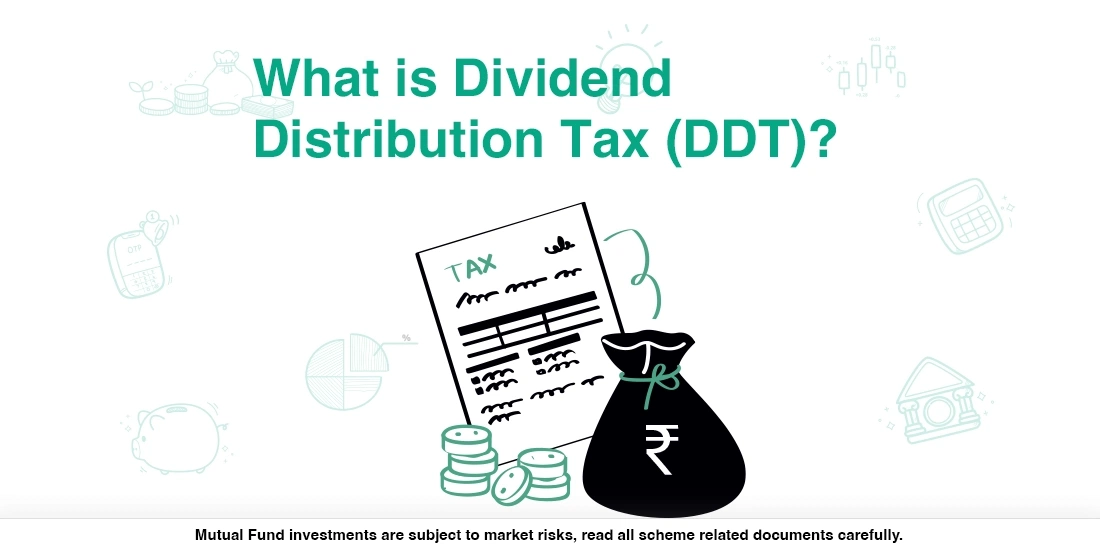What is dividend distribution tax?
1min 23 seconds read

Dividends are paid from the profit made by Mutual Fund schemes purely out of investment activities pertaining to the scheme’s portfolio and are at the discretion of the trustee. If the scheme makes a loss in a falling market, the trustees may decide to forgo dividend payout announcement. Since dividend is a profit or income, it is considered taxable and the tax applicable on dividends is called Dividend Distribution Tax (DDT). Earlier dividends were taxable at source i.e the scheme had to pay DDT before distributing it to investors. This obviously reduced the amount of dividend payout, but it was tax-free in the hands of investors.
With effect from Apr 01, 2020, DDT has been abolished and mutual fund dividends have been made taxable in the hands of investors. Now dividend income will be considered as income from other sources and investors will have to pay tax on it as per their individual tax slabs. Hence the benefit or loss owing to mutual fund dividend tax as compared to the previous regime of DDT tax will depend on the investor’s tax slab.
Earlier, all investors received the dividend payout after a uniform Dividend Distribution Tax rate was deducted by the scheme. DDT had an equal impact on all investors because it reduced the distributable surplus of the scheme with the application of a uniform tax rate depending on the type of scheme. That’s no more the case now. While investors will receive dividends in proportion to their investments, an investor in a higher tax slab will end up paying higher tax on the dividends received as compared to someone in a lower tax bracket.
Removal of DDT has made it a level playing field for both Growth and Dividend options under a scheme. Hence investors will now have to weigh the benefits of opting for a dividend option in terms of effective tax rate (including cess and surcharge) applicable to them and the need for dividend income.